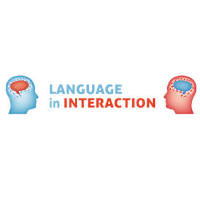
14 Sep Postdoc – Electrophysiology of Perceptual Inference for Language and Planning
Big Question 5
Scientific summary
The efficiency and flexibility with which we infer (or generate) meaning during language comprehension (or production) is remarkable. How does our brain do it? To move beyond the many extant attempts to address this big quest, we will treat linguistic inference as an advanced solution to the multi-step, sequential choice problems that we have long faced in other cognitive domains (e.g. chess, foraging and spatial navigation). Specifically, we will make unique progress in unraveling the mechanisms of fast, flexible linguistic inference by leveraging recent advances in our understanding of the representations and computations necessary for sequential action planning. This approach will also lead us to revise current dual-system dogma’s in non-linguistic domains, that have commonly over-focused on the contrast between a cognitive (flexible, but slow) and a habitual (fast, but inflexible) system. The current quest will encourage the integration of so-called ‘cognitive habits’ and their associated cognitive map-related neural mechanisms into theoretical models of both linguistic and nonlinguistic inference.
Postdoc Position: “Electrophysiology of perceptual inference for language and planning”
Description
This sub-project functions within BQ5 via the combination of behavioural experimental psychology, magnetoencephalography (MEG), and advanced data analysis techniques in order to study the neural transformations that underlie structure generation in language and in action planning. In addition to designing, and executing your own experiments, you will also have the opportunity to collaborate with other members of the highly interdisciplinary Big Question 5 team and quite closely with the computational modelling sub-project 3 of BQ5.
Requirements
You are a creative and academically well-trained individual as evidenced by high-quality publications in top-ranked scientific journals. You should have obtained or are close to obtaining a PhD degree (or equivalent) in the language sciences, cognitive neuroscience, computational cognitive neuroscience, computer science, or psychology. A strong background in M/EEG is necessary. Good programming skills (Matlab, R, or Python), and prior experience with advanced analyses of neural data are required. You should have active interest in complex human cognitive functions, such as language and conceptual reasoning, and in bridging experimental and theoretical approaches. Previous experience with multidisciplinary research is desirable and a collaborative, open attitude with well-developed communication skills, and a team-science interdisciplinary spirit are necessary.
Applications from excellent candidates with a less than ideal profile will be equally considered.
Embedding and Terms of employment
This position will be held at the Donders Institute for Brain, Cognition and Behaviour, Centre for Cognitive Neuroimaging, Radboud University, Nijmegen, The Netherlands. The position will be embedded in, and enriched by contact with, the research groups of Andrea Martin and Saskia Haegens.
Contact information
Dr. Andrea Martin, Dr. Saskia Haegens, and Dr. Ashley Lewis
INTERESTED?
Information on the application procedure or Apply directly


Sorry, the comment form is closed at this time.